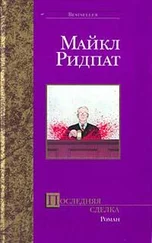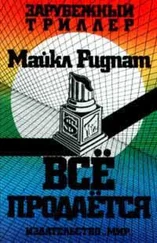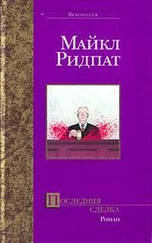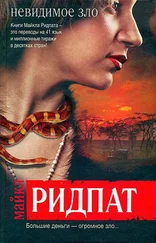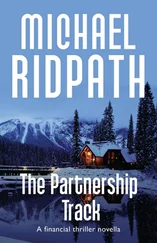‘And moving to Norfolk?’
‘Temporarily. Suzy, my friend from college, has a place in New York, but her roommate is moving out in the new year. So I just need somewhere to stay until January.’
‘Does Dad know about this?’
‘No. It will be a nice surprise for him.’
‘Do you have a job? In New York?’
Alice was known in her family for being pleasingly direct.
‘Oh, yeah. Suzy says I can work with her.’
‘That’s good. What does she do?’
‘She’s an actor. But the job is waiting tables. The Belgian Beer Café is the name of it. Suzy told her boss I spent two years living in Brussels, so the job’s mine.’
‘You were twelve!’
‘Hey. I speak French. And I can even do the Belgian accent if they want me to.’
‘But what about that master’s in mathematics? You’re wasting yourself, Megan.’
‘So I can count the waffles. In French. The job’s mine.’
The two enormous suitcases barely fitted into the back of Toby and Alice’s new Golf, but eventually they were crawling along the M25 in everyone else’s rush hour.
Megan stared out of the window from the back seat. ‘Guess they don’t have Thanksgiving in this country, huh?’
Megan knew they didn’t celebrate Thanksgiving in Britain. Alice’s family had lived all over the world. Although Alice had been born in Virginia, she had attended various American schools in Surrey, Brussels, Mannheim and Saudi Arabia, from what Toby could work out, before their father had settled down in London. The three eldest sisters — Alice, Brooke and Megan — had American accents, although the youngest, Maya, sounded English: her formative years had been spent at a private girls’ school near Regent’s Park. Their father still lived in a flat in Kensington, but he and his wife had bought a house on the North Norfolk coast, and it was there that the Guth family celebrated en masse.
‘You been to a Thanksgiving celebration before, Toby?’ Megan asked.
‘Yeah. Last year, with your dad in Kensington. I like it. Lots of food. Lots of wine. Family.’
‘Sorry I couldn’t make that,’ said Megan.
‘You’re here now,’ said Alice.
‘Yeah. And sorry I didn’t make your wedding either. I got this flu bug at the last minute. Who knew they got the flu in Texas? You’d think with all that sunshine...’
‘You’d think,’ said Alice, clearly unimpressed with Megan’s excuse. Toby remembered her fury well. ‘I’m afraid I gave your bridesmaid’s dress to Oxfam.’
‘That’s a good cause.’
‘Brooke called. She and Justin flew in from Chicago yesterday,’ Alice said. ‘They stayed in London last night and they’re driving up to Norfolk in a rental car today. Maya’s flight doesn’t get in till midday, but she swears she’ll still make it. So that’s everyone.’
‘Not quite everyone,’ said Megan.
‘No,’ said Alice.
In the silence that followed, Toby knew they were both thinking about their mother. She would be in the minds of the sisters and their father as they sat around the dinner table.
‘Did Dad bring randoms last year?’ Megan asked.
‘Dad brought randoms,’ said Alice. Indeed he had invited a couple of American strays in London — a neighbour and some guy he had worked with twenty years before, and Alice had brought one of her own from work. That was something else Toby liked about Thanksgiving. And his father-in-law’s generosity.
‘Any randoms this year?’
‘Just Uncle Lars,’ said Alice.
‘Uncle Lars! Isn’t he in jail in Trinidad?’
‘They must have let him out and I think it’s Guadeloupe.’
‘What!’ said Toby.
‘I’ve told you about him,’ said Alice. ‘He’s a loser. But Dad likes him. They served in the Navy together.’
‘Didn’t Alice mention he was a drug-runner?’ said Megan.
‘No,’ said Toby. ‘Sounds like an unlikely friend for your dad.’
‘Dad’s loyal, you know that,’ said Alice. ‘And Uncle Lars was a long way down the food chain. He owned a sailboat in the Caribbean. Took tourists out on cruises. Or at least that’s what he said he did. Then one day Dad gets a call and Lars says he needs a good lawyer in Guadeloupe. Dad found him one somehow. Lars said he was framed, but Dad didn’t believe him. Neither did the judge.’
‘I suppose that explains why you haven’t seen him for a while?’ said Toby.
‘Not even a Christmas card.’
Megan hadn’t slept on the plane, and they had no sooner hit the M25 than she was slumped on the back seat with her eyes closed. Alice pulled out her iPad to read a document. She was a lawyer at an American firm in the City and they made her work hard. Very hard.
It rained steadily on the journey, thick dark clouds pressing down, so low that they scraped the tower of Ely Cathedral, squatting on its little island in the fens.
The phone in Toby’s pocket emitted a subdued double chirp. A text message.
Alice looked up. ‘Shall I check it for you?’
‘It’ll only be Piet.’
‘It might be important?’
‘It won’t be,’ said Toby. Piet was Toby’s partner at Beachwallet, a lanky Dutchman with whom Toby had worked for a couple of years at a consultancy. They had come up with the idea for Beachwallet together, in the Red Lion in Hoxton Street one evening. Piet was enthusiastic but headstrong, and sometimes just a little impatient. ‘It’s Thanksgiving. He can wait.’
‘I wish you could tell my client that,’ said Alice, nodding towards her iPad.
‘It’s good to get out of London.’
‘It is, isn’t it?’ said Alice.
He took his eyes off the road ahead for an instant to see that she was giving him one of those smiles that he loved so much. Alice had a brisk professional smile, she had a friendly social smile, she had a warm smile for her friends, and then she had that smile. Just for him.
‘Thank you for letting me into your family,’ he said.
‘Thank you for joining us.’
He wrenched his gaze back to the road.
They skirted King’s Lynn, rotating around the sequence of giant roundabouts that protected the town, and crossed low ridges of ploughed fields and lonely farms, heading towards a wide band of blue sky nudging up against the grey blanket of cloud. They topped a hill and the North Sea stretched out in front of them, glittering in unlikely sunshine. Far out in the distance a copse of wind turbines fluttered in the strong breeze.
Toby felt his heart lift after the crowded grey streets of London and the heavy grey moisture above the fens. The sky, beyond the curtain of cloud, seemed to stretch for ever ahead, above and to either side.
They drove down to the coast road, and then along it for a few miles until they came to the village of Barnholt: a flint church with a stubby round tower, a pub, a farm shop, an ancient cross in a tiny green and a ribbon of houses running along the coast road and off a couple of lanes reaching towards the sea. Above the village, a windmill perched proudly on the low coastal ridge, its arms stretching wide in the November sun.
The house, Pear Tree Cottage, was at the end of one of the back lanes, which ran parallel to the coast road, with a view of a marsh and then a double rank of sand dunes. The building was long and low, constructed of chips of flint, its doors and windows framed in worn red brick. Originally two cottages, they had been knocked together to create a decent-sized house. Local legend had it that in the early part of the nineteenth century one of the cottages had been the operational base of a particularly successful local smuggler of Dutch gin and French brandy. A low flint wall sheltered the garden from the north wind and the pear tree, recently relieved of most of its leaves, shivered in the damp. In summer the house opened out in a riot of roses and hollyhocks. In November, it looked inwards, curled up in its flint shell, a ribbon of sweet-smelling wood smoke from its chimney promising warmth and cosiness inside.
Читать дальше


